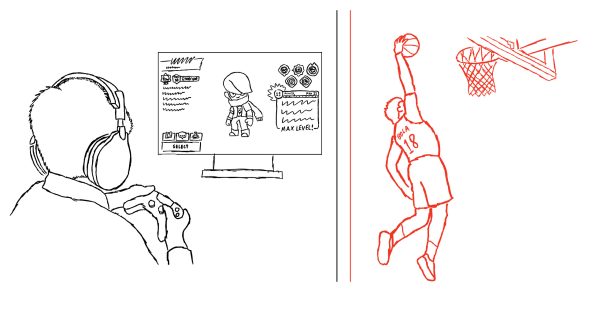Staff Editorial: Languages show hidden beauty that programming can’t
In the Jan. 31/Feb. 1 edition of the Wall Street Journal there ran a story portentously titled “The Language Barrier Is About to Fall.” The author, Alec Ross, predicted that in 10 years the need to learn foreign tongues will have been eliminated by a yet undeveloped earpiece that will be able to translate in real time any language into the language of the wearer. This would, of course, be one of the most ingenious accomplishments in the history of the human race; commerce could extend to the obscurest crannies of the most underdeveloped countries, and the whole world would be connected in an alliance of mutual comprehension.
It would also be a horrific tragedy.
The story of the Tower of Babel from Genesis relates allegorically the creation of the “language barrier,” which has since caused mankind immeasurable confusion, grief and conflict. Language is so fundamental in human life that two people who do not speak the same one are often completely riven, no matter how otherwise similar they may be. Translators and interpreters have existed almost since the beginning of language itself to allow different groups to understand and communicate with one another. Without interaction there can be no accord, so history has been a continuous struggle to transcend idiomatic differences.
That is still the goal of the earpiece translator, but there is a critical difference: the earpiece is a machine. For thousands of years, translators have been people, people who have had to learn a foreign language themselves. The replacement of human beings by machines in any industry tends to improve speed and efficiency, but something ineffable is always lost. In this case, the loss would divide the world more than unite it.
Learning a foreign tongue requires tremendous effort and humility. There is no club so exclusive as a language: if you can’t speak it, you’re out, period. You can progress only by studying diligently and by accepting the new language’s idiosyncrasies. Why is the verb “to fall asleep” reflexive in Spanish? Why is “yeux” the plural of “oeuil”? Because that’s just how it is, and no amount of fulmination is going to change it. In learning a language you are forced to acknowledge that you are not, in fact, the cultural center of the universe. The Italians managed perfectly before you decided to take up their vernacular. In learning, you must attempt to understand not only the grammar but also the spirit of a foreign society. There is no better way to become a sophisticated and open-minded person.
Of course, translation itself is an inherently limited enterprise. The relationship between two languages is never a one-to-one function. A machine can substitute one word for another, but it cannot capture the spirit of the language. The vocabulary of each language isn’t even the same size. The translators of the King James Bible took 16 different Greek words and rolled them into the English word “righteous,” so any nuance the New Testament authors had created was completely destroyed. Can a machine decide when to use “sass” instead of “insolence”? Language is all about picking the right word, not the almost-right word. Maybe the difference seems insignificant, but only human beings can make those small distinctions that make language so fascinatingly beautiful.
Naturally no one can study every language, so the need for linguae francae will remain, and they will necessarily be common world languages such as English and Chinese. Furthermore, there are many people who find learning a language very difficult, but that is the fault of their education. Improved language instruction started at a very young age would mostly correct this problem. It is far more beneficial to develop a way of teaching linguistically deficient people than to dismiss them entirely by giving them a crutch.
An electronic tchotchke will not connect the world; it will ensure that no one ever again learns a foreign language and reaps the benefits of the process. It is true that few Americans learn Javanese now, but no Americans will learn Javanese if all they have to do is buy an earpiece to be able to conduct business in Indonesia. A language is not simply a tool of commerce. It is a window unto an entire civilization, and to discourage the wholehearted study of a foreign language and culture is to strip the world of a sincere form of admiration.
The Viator Voice declares, in full expectation of being understood, “Vive la différence!”
Your donation will support the student journalists of Saint Viator High School. Your contribution will allow us to purchase equipment and cover our annual website hosting costs.







